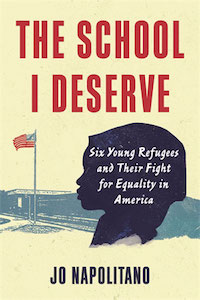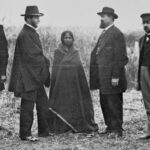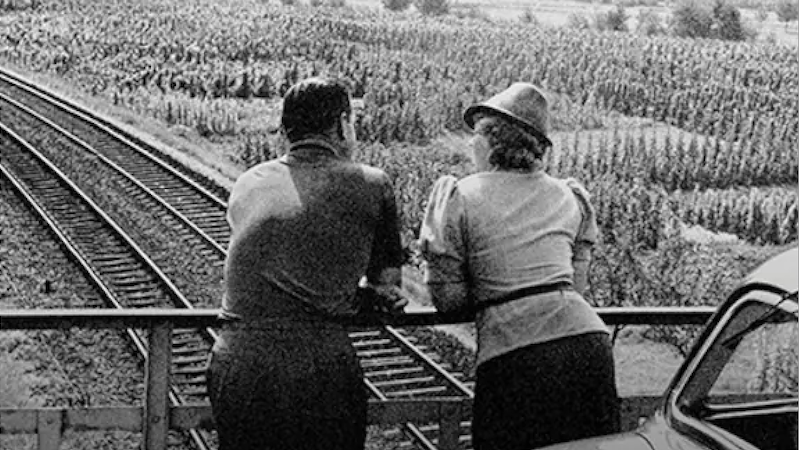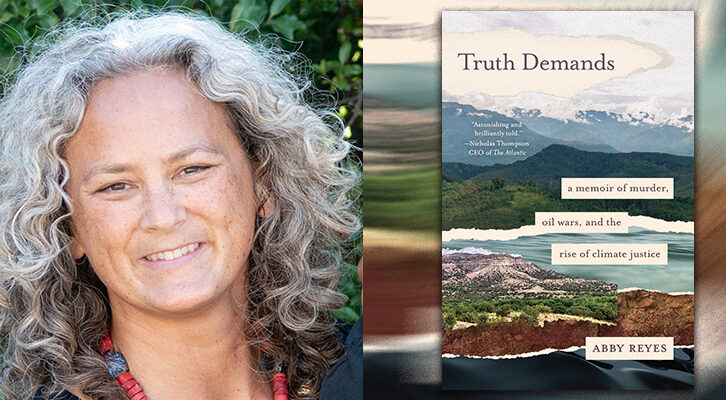On the Battle to Reform a Pennsylvania School District’s Xenophobic Enrollment Policies
Jo Napolitano Considers the Concerns of Refugee Advocates in the Lancaster Community
Elise Chesson, 36, who hailed from a family of civil rights crusaders, couldn’t help but become an activist. It was in her DNA. Her mother, Lorraine Fontaine, of Montreal, Canada, spent 16 years fighting for women’s rights as they related to childbirth. Fontaine also worked for years as a youth minister in her church back when she lived in Toronto, teaching the children of middle-class congregants about social inequality. She and her husband, Dan, had both served on the social justice committee in their parish, urging worshippers to consider the myriad factors that create unequal opportunity for minorities and the poor.
But the root of the family’s activism lies with Chesson’s 77-year-old grandmother, Adèle Fontaine who believed, well ahead of her time, that all women should be free to explore their passions outside the home. A mother of seven, she spent years working with delinquent youth and also teaching at the university level.
In the later part of Adèle’s career, she worked with a nonprofit that served French-speaking African immigrants looking for employment. Ever independent, she moved to Korea at age 62 to teach English. Her husband, Normand, a radio announcer and artist, visited her overseas until she returned nearly three years later.
Chesson’s mother started taking her to various protests beginning when she was just a baby, filling her tiny ears with chants of “Hey, hey! Ho, ho! Nuclear arms have got to go!” or “Free Nelson Mandela!” Years later, fueled by her growing interest in Canada’s indigenous population, Lorraine took the family to visit the First Nation Community of Sheshegwaning on Manitoulin Island in Lake Huron. Though they were initially suspicious of her motives—Canada, just like America, frequently trampled the rights of indigenous people—the group eventually warmed to the family. Twenty members of the tribe, including the chief, later visited them in Toronto. It was an important cultural exchange, one that Lorraine hoped would make a lasting impression on her family.
She wanted her children to be exposed to other cultures and also to recognize their own ability to change the world. So it’s no wonder that Chesson would be compelled to call out injustice as she grew into adulthood.
“She sees every opportunity as a chance to open minds,” Fontaine said of her daughter. “She will not back down when it comes up to standing up for people’s rights.”
Chesson eventually married a man who hailed from Liberia and had two children of her own. The family moved to Pennsylvania in 2007 so that her husband could pursue a job opportunity. Chesson had other goals: She put her academic and career ambitions on hold to raise a family.
It’s no wonder that Chesson would be compelled to call out injustice as she grew into adulthood.But her interest in social justice never waned. In 2008, she became involved in Obama’s presidential campaign, spending several hours each week going door-to-door in Reading to convince mostly Spanish-speaking voters to take a chance on a relatively unknown candidate. She was proud of her participation: Obama’s victory wasn’t just about politics, but about social change, she told friends and family.
Chesson went on to earn an associate’s degree in cultural anthropology from Reading Community College in 2013 and a bachelor’s degree in international relations from West Chester University two years later. She landed a job at Lutheran Immigration and Refugee Service in November 2015, hired as the organization’s employment program manager. Another team within her agency was charged with school enrollment, but the task soon fell to Chesson and her colleagues. It took only a few weeks on the job for her to realize there was something wrong with the School District of Lancaster’s enrollment policies.
“The initial red flag was Mahamed,” said Chesson, who first met the teen when she was assigned through her job to resettle his family. “He was denied entry to school and there was some confusion as to whose responsibility that was.”
Chesson was determined to find the root of the enrollment problem and tried to enlist the help of Sheila Mastropietro of Church World Service, who had worked with the Lancaster schools for decades. But Chesson found Mastropietro surprisingly unwilling to pursue the matter.
Mastropietro had worked with Lancaster refugees for decades and was a fixture in the community. She couldn’t afford to burn bridges. But where, Chesson wondered, did that leave Mahamed? The caseworker didn’t want to become part of a bureaucracy that left students like him with no advocate.
“I didn’t want to be that person who saw something that I could change… and turned away,” she said.
Chesson’s initial contact with the district came in the form of a conference call in December 2015 when she tried to learn more about its enrollment procedures. She wanted to know who decided each child’s fate and whether such decisions could be appealed, but the call did not go well.
The district was resolute. Administrators suggested that Mahamed enroll in a GED program, but Chesson knew that was no substitute for a high school education.
“It’s two different worlds,” she told school officials. “And if we all have the goal of self-sufficiency and building up a community that is work-ready and whatnot, then I think you guys know what’s the best route.”
Chesson worried that the district was admitting students based on what she considered unrelated factors, including a child’s perceived demeanor during meetings with administrators. School officials’ response did little to change her mind: They said Mahamed was uninterested in school, that he backed away from a conference table during a key meeting with enrollment gatekeeper Jacques Blackman and didn’t want to engage in a discussion about his future.
Chesson doubted the story, not only because Mahamed denied it but also because, she believed, it made no sense. Even if Mahamed had seemed aloof or remote, what frustrated teenager doesn’t seem standoffish from time to time, she wondered? Especially one who had such a challenging childhood and who felt so poorly treated by the district?
She and other advocates brought this up at a contentious meeting with school officials on February 11, 2016, when they asked administrators whether personal observations factored into their decision-making process regarding enrollment. School officials denied it, Chesson said. Instead, they cited the refugees’ ages, lack of language skills, limited school credits prior to arrival in America, and potential for dropping out as factors in their placement. They insisted, the caseworker said, that older refugees wanted to find work rather than attend school.
Chesson knew they were wrong, at least about Mahamed, but she wasn’t gaining ground, so she and her colleagues moved on. They told school administrators that Phoenix made little effort to provide students with translation services and that the documents sent home to their parents were often written in a language they did not understand. But nothing seemed to compel the district to address these issues.
Eager to learn more about Phoenix Academy, Chesson attended the alternative school’s orientation in the winter of 2016 alongside Khadidja and another resettlement caseworker, Bilal Al Tememi. The district did not provide a Fur or Arabic translator. Al Tememi, who spoke Arabic, served as Khadidja’s interpreter.
Chesson described the atmosphere at the school as unsettling. “It seemed very stale,” she said. “Every level had behavior specialists. I would have described it more like a detention center.”
The orientation focused almost entirely on student discipline, with the presenter telling the crowd that Phoenix was “a school of last resort,” Chesson said.
“‘This is your last chance,’” Chesson recalled her saying. “’We don’t know where you are, where you’re coming from, or what you’ve been through, but we need to keep order in this school.’”
Chesson said the woman went on to outline the ways in which a child might be reined in by staff, including the Handle With Care protocol, which was demonstrated on a female student picked from the crowd. The presenter had asked for a volunteer, but no one raised their hand. Chesson was outraged by what she saw. She couldn’t believe the refugees would be subject to such treatment having no prior record of disciplinary problems.
She couldn’t believe the refugees would be subject to such treatment having no prior record of disciplinary problems.Swallowing her shock, she began to inquire about Phoenix’s academic offerings, asking for key educational statistics, including the school’s drop-out rate and percentage of students who go on to college. But the presenter didn’t have the answers.
Chesson moved on to the school’s English language program and its homework policy. She was told there was no homework.
“What about the pat-downs and dress code?” she asked, continuing to press for answers long after the orientation had ended.
Chesson also inquired about the school’s curriculum, which seemed to mostly focus on satisfying basic, general educational requirements before moving on to the campus’s fast-paced learning environment.
That’s when the conversation took a surprising turn. Chesson said the presenter told her that school staff—including an overwhelmed ESL teacher—didn’t believe Phoenix was the right place for refugees. The woman said they had already brought this to the attention of the district but that nothing changed. She said she hoped Chesson and her colleagues would have better luck routing the students to a different location.
Astonished, the caseworker immediately fired off a series of emails to other refugee advocates, including Mastropietro. Convinced that the alternative school was not the appropriate setting for traumatized young refugees, she pushed for yet another meeting with school officials.
Chesson, Mastropietro, other refugee advocates, and school officials met yet again in mid-March 2016. Chesson urged the district to take action in Mahamed’s case, to investigate the bullying that drove him off campus. School administrators vowed to inquire but said it would take time.
Chesson could hardly believe what she was hearing: by that point, the school year was almost over. The caseworker warned that students were already falling through the cracks and implored administrators to look into specific cases. But school superintendent Demaris Rau refused.
“Why couldn’t these students go to the International School instead of Phoenix Academy?” Chesson asked.
Increasingly irritated by her tone, Superintendent Rau, new to her post, told Chesson to be patient as the district reevaluated its admission policies the following school year. But the caseworker would not let go.
Chesson knew that Mastropietro, head of Lancaster’s other major re-settlement agency, had already confronted the district about the very same issue years earlier and nothing was done. There was no way she was going to allow the district to squander yet another year of a child’s education. Time had already run out. Mahamed had fallen into a deep depression and Khadidja considered giving up her fight entirely.
“There were multiple opportunities for them to make changes, but they didn’t want to,” Chesson said. “It’s often the case that people who don’t have money also don’t have a voice and are easy to brush aside.”
Chesson knew that students who failed to graduate high school qualified only for dead-end jobs. She knew, too, that low-skilled workers, including those who populated the region’s many poultry plants, often toiled in wretched conditions.
“Sometimes they’re exposed to harmful chemicals or freezing temperatures,” she said. “It’s horrible.”
And they were easy to replace, leaving them virtually no leverage with their employers. Such uncertainty, she said, does not allow for a happy, fulfilled life.
“You are so consumed by that and you are so emotionally and physically drained that when you come home, you have nothing to give,” she said.
Chesson knew she needed outside help if anything was to change at the school district. By the spring of 2016, she was staying up for hours each night, sometimes until 3:00 a.m., compiling data she hoped would win the attention of the media or of attorneys who could intervene on the students’ behalf.
After she prepared her pitch, she reached out to the State Board of Education but had little faith that it would take action, especially considering its leadership. Pedro A. Rivera, nominated as the state’s secretary of education on January 20, 2015, was formerly the superintendent of the Lancaster school district. He was at the helm when the district outsourced its alternative schools to Camelot and when it set up its enrollment procedures.
Even if the department did take action, Chesson feared it would only make recommendations and that it would be years before the situation was truly corrected. And she worried that she would be forced to share with the school district all of the information she had amassed, allowing administrators a chance to undermine her claims.
Chesson called statewide advocacy groups and a national news outlet but wasn’t making any progress. The advocates didn’t return her calls. The news outlet didn’t take the story seriously enough. As the weeks passed, Chesson grew increasingly worried that the problems in Lancaster would remain unnoticed.
“I felt we were going to be in this spinning spiral of endless nothing,” she said.
But Chesson was made for this moment. She had the drive and ability to see this fight through. She just couldn’t do it alone.
__________________________________

Excerpted from The School I Deserve: Six Young Refugees and Their Fight for Equality in America. Used with the permission of the publisher, Beacon Press. Copyright © 2021 by Jo Napolitano.




















